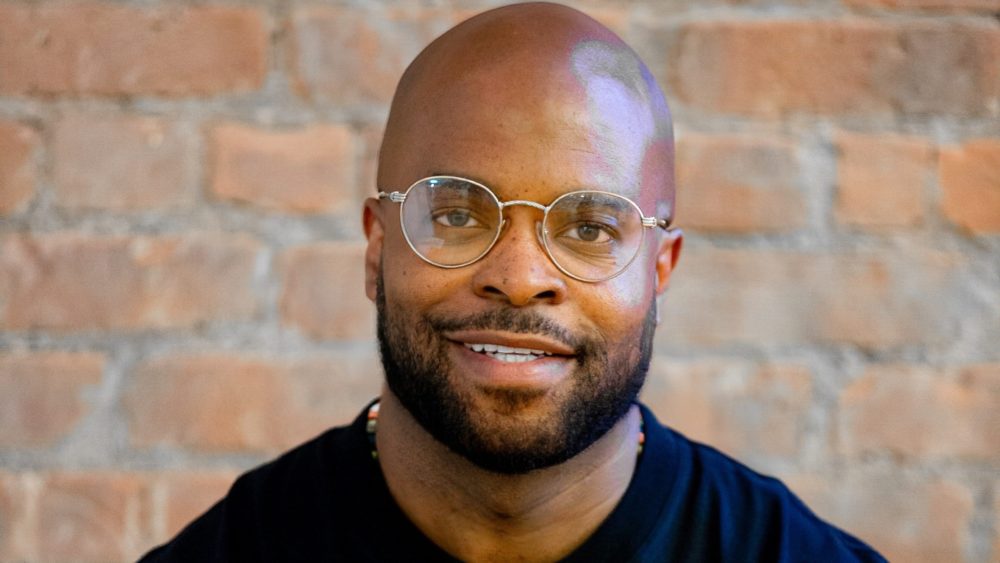Rob Walker on Reviving Star Trak, the Label Co-Founded With Pharrell
When Rob Walker was contemplating a new venture in the music business, his longtime business partner Pharrell Williams suggested going back to the beginning.
“Pharrell was like, take Star Trak, you should do that,” Walker tells Variety of the era-defining label — which launched the Clipse, Kelis and N.E.R.D. — he co-founded with Williams and his Neptunes co-pilot Chad Hugo in 2001. “I feel like that part of the story ended, and I wanted to open it up and see where we could reintroduce not only Star Trak to a new generation, but all of the people who still want quality.”
Last week, Walker announced that he had partnered with Create Music Group to relaunch Star Trak Entertainment. Walker says he went with Create — valued at over $1 billion — at the initial suggestion of Kyle Bartelman, director of global corporate development and M&A at the company. As part of the joint venture, Create will provide worldwide distribution, technology and marketing services to Star Trak, giving a second life to the brand that operated on the fringe of popular culture while nudging it in a new direction.
At the start, Star Trak was a landing pad for Williams and Hugo, who were coming off of a hot streak of producing hits including Jay-Z’s “I Just Wanna Love U (Give It 2 Me)” and Mystikal’s “Shake Ya Ass.” Williams hatched the idea for the imprint following Kelis’ 1999 debut “Kaleidoscope,” one of the first full-length Neptunes productions, which was released through Virgin. That album was a theoretical template for what Star Trak would inevitably produce: records that toyed with the conventions of modern hip-hop and R&B while bending the will of pop music towards it.
Throughout its run, Star Trak changed distributors several times, moving from Arista to Virgin to, inevitably, Interscope Geffen A&M. Part of what made the label so viable was the cross-pollination between artists — Kelis popping up on N.E.R.D. records, Clipse making cameos on Kelis songs — with the Neptunes serving as a center of gravity. When they landed at Interscope, that label’s chief, Jimmy Iovine, shifted the Neptunes towards working with more marquee talent like Gwen Stefani and Snoop Dogg, leading to some of the biggest hits of the new millennium including the former’s “Hollaback Girl” and the latter’s “Drop It Like It’s Hot.”
Walker explains that he’s taking a different approach with Star Trak 2.0, instead collaborating with established artists who never quite reached their full potential as a precursor to fostering new talent. “I’ve been exposed to so much due to my relationship with the guys,” he says. “I just kind of want to go for it and tell a different version of an artist that may feel different or can’t fit into what’s happening today. I want to give that artist an opportunity to be heard, and also tap into the ecosystem of everything that’s happened over the last 25 years, in terms of any ancillary thing, brands, that kind of thing.”
Though there aren’t any concrete plans to do so just yet, Walker explains that the relaunched imprint could be an opportunity to release fan favorites — songs that leaked to the Internet, or records like the first iteration of N.E.R.D.’s 2001 debut “In Search of…”
“Since it was [Pharrell’s] idea for me to rebirth this thing and put it out there, it’s wide open for us to figure out some special, cool concepts or ideas that we could bring some of that old stuff back that people love,” says Walker, who is yet to discuss archival releases with Williams. “Like the prequel mixtape he did for his ‘Clones’ album, that was never fully released. There’s opportunities for stuff like that that could be cool for us to release and put out.”
It’s a full-circle moment for Walker, who first met Williams as an intern at RCA Records. After Williams persistently called the office asking for his boss, the two developed a friendship that led to Clipse signing to Elektra for the shelved album “Exclusive Audio Footage” and, subsequently, Williams asking Walker to manage him. Under the Star Trak umbrella, they signed a robust roster of emerging talent — Fam-Lay, Spymob, Vanessa Marquez — and put out hit records from Snoop Dogg and Robin Thicke. But beyond that, Walker expanded his portfolio, serving as a talent agent at UTA and co-founding Billionaire Boys Club and its clothing line Ice Cream.
Though Star Trak went inactive in the mid-2010s, it makes sense to revive it in a musical climate where audiences are more open to outré creativity. Walker’s first moves involve putting out a record or two by year’s end, with a long-game vision to bring the imprint back to the forefront.
“I think the most important thing is to let people know we’re back open for business and be a force and really protect and support artists and give them the best opportunity to not only be great, but to have a career — an impactful career,” he says. “It could be interesting to find an artist that can represent Star Trak globally and give the authenticity of culture and sound that made a generation of fans of Star Trak. That’s what makes this new chapter as exciting and interesting. Tapping into the world musically and finding new colors. As long as it’s authentic, magic and impact can happen again.”


